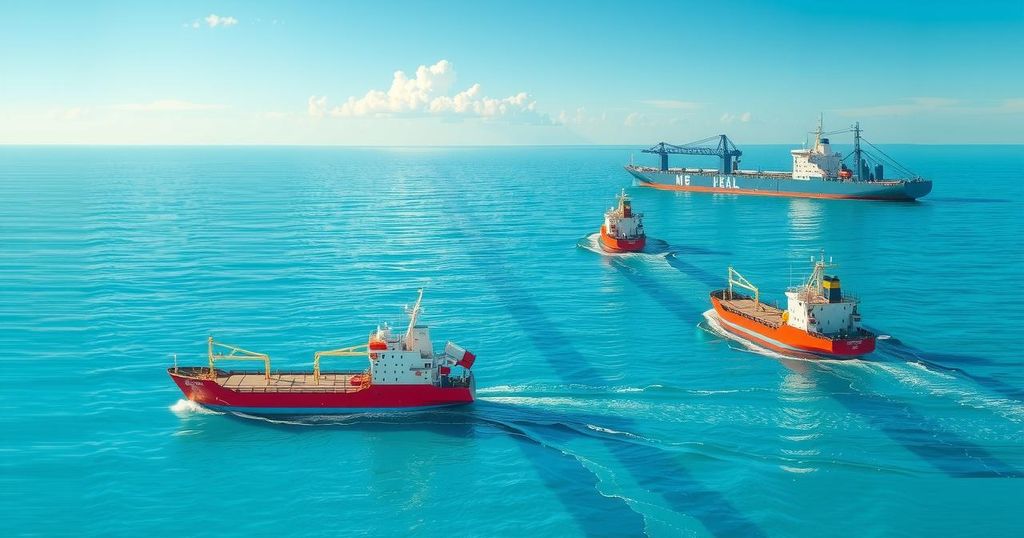NIMASA’s Campaign to Abolish War Risk Insurance Premiums for Economic Growth

NIMASA is leading efforts to eliminate war risk insurance premiums on cargo to Nigeria, which have cost the nation over $1.5 billion in recent years. The agency cites improvements in maritime security as a basis for abolishing these premiums, particularly after not recording piracy incidents for over three years. Despite international recognition of Nigeria’s security efforts, shipping companies continue to impose these costs, prompting NIMASA to seek international diplomatic support for reform.
War risk insurance (WRI) represents a significant financial burden for Nigeria, comprising surcharges imposed by international shipping companies on cargo heading into the country. This fee includes war risk liability, which protects against harm to people and goods aboard vessels, and war risk hull coverage, which pertains to the vessel’s valuation. Introduced in response to regional militancy and piracy, Nigeria’s payments for WRI have exceeded $1.5 billion over the past three years, leading to profound economic impacts. The surcharge per voyage for a Very Large Crude Carrier can cost approximately $445,000, while new container vessels incur fees of around $525,000, exacerbating the burden on Nigeria’s economy.
Recognizing these daunting economic implications, the Nigerian Maritime Administration and Safety Agency (NIMASA), under Dr. Dayo Mobereola’s leadership, has initiated a campaign to abolish war risk insurance for cargo entering Nigeria. Citing mandates from the NIMASA Act and the Merchant Shipping Act, the agency aims to eliminate this financial weight as part of its broader maritime reform efforts. With piracy incidents in Nigeria reportedly halted for over three years and international recognition of its improved security status from organizations like the International Maritime Bureau, the basis for these premiums is increasingly questionable.
Despite the national efforts to enhance maritime security, including the Deep Blue Project which has eradicated piracy for over 30 months, shipowners and insurers continue to impose significant WRI premiums on Nigerian-bound cargo. NIMASA has made substantial strategic investments in working with the Nigerian Navy and international organizations, collaborating with entities such as the International Maritime Organization (IMO) to bolster its security measures. The international community, however, has not fully acknowledged Nigeria’s progress, resulting in persistent high premiums that are detrimental to Nigerian trade and businesses.
Professional diplomacy has become vital in addressing the persistent injustice of war risk insurance. Dr. Mobereola has taken Nigeria’s case to international forums, meeting with influential bodies such as Chatham House, and engaging with organizations like BIMCO and the International Chamber of Shipping. These discussions highlight Nigeria’s advancements in maritime security, urging international shipping stakeholders to recognize and lower premiums that have unjustly burdened the nation’s economy.
Recent engagements with Denmark’s shipping interests underscore the need for action. There is an expectation that if Denmark pressures key shipping players like Maersk, other firms may follow suit, potentially alleviating the financial strain on Nigeria. With Dr. Mobereola and NIMASA bringing this issue to global attention, there is a clear call to action for all stakeholders—government, industry, and international partners—to collaborate in removing these unjustified insurance premiums that continue to impact the Nigerian economy adversely.
In conclusion, Nigeria’s efforts to eliminate war risk insurance premiums reflect significant advancements in maritime security and economic strategy. Under the leadership of NIMASA, the country has made commendable progress in combatting piracy, leading to calls for the removal of this financial burden from international shipping companies. The potential savings from eliminating WRI premiums could benefit Nigeria’s economy substantially, enhancing competitiveness and attracting foreign investment, thereby solidifying its position in global trade.
Original Source: www.thisdaylive.com








